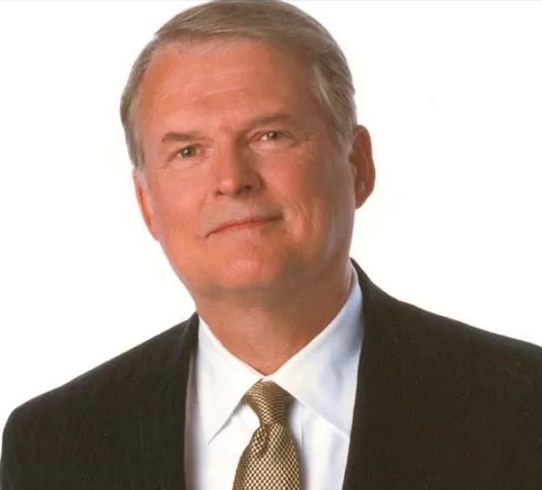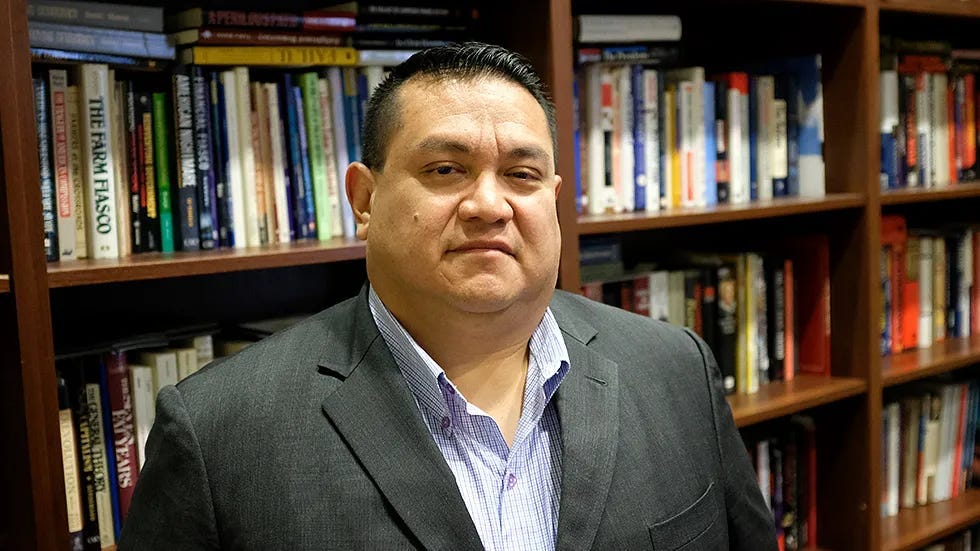Political plus
Freedom Conservatives work to align sound policy with electoral success
The Freedom Conservatism project began in 2023 with a clear statement of principles. “To ensure that America’s best days are ahead,” we wrote, Americans must “apply the timeless principles of liberty to the challenges of the 21st century.”
Among the hundreds of signatories to the FreeCon statement are authors, scholars, and educators who delve deeply into the historical, philosophical, and religious literature that inspired the American Founding, including the Bible, ancient Greek and Roman histories, Locke, Trenchard, Gordon, Montesquieu, Sidney, Blackstone, and many more.
Others are attorneys and social scientists who offer practical suggestions for policymakers to implement. FreeCons have been at the forefront of such successful initiatives as striking down racial preferences in admissions and employment, deregulating energy and labor markets, enacting supply-side tax reforms in dozens of states, and expanding choice and competition in American education.
While good ideas and prudent administration are essential, neither is sufficient for Freedom Conservatism to govern. Its political champions must win elections and reelections.
America’s Founders knew this, too. Most had political experience themselves — in legislatures, assemblies, and local governments. Many would go on to serve as U.S. representatives, senators, governors, cabinet secretaries, and presidents.
They knew they were establishing a republic in which one of the checks on tyrannical government would be regular elections.
“The aim of every political Constitution is or ought to be first to obtain for rulers, men who possess most wisdom to discern, and most virtue to pursue the common good of the society,” wrote James Madison in Federalist 57, “and in the next place, to take the most effectual precautions for keeping them virtuous, whilst they continue to hold their public trust.
“The elective mode of obtaining rulers is the characteristic policy of republican government.”
Today we feature FreeCons who explore the electoral implications of policy choices and political conduct.
Shotgun wedding
Neal B. Freeman is chairman of the Foundation Management Institute, the founder and former chairman of The Blackwell Corporation, chairman of the Neal and Jane Freeman Foundation, and a FreeCon signatory.
A former Washington editor for National Review, Freeman founded Jefferson Communications, a syndicate supplying content to hundreds of newspapers and magazines while also producing books, animated entertainment, and licensed products.
His longtime collaboration with William F. Buckley, Jr. included managing Buckley’s campaign for mayor of New York and serving as founding producer of the long-running TV series Firing Line.
Freeman also served as an executive with the Hearst Corporation, editor of King Features, and director of King Features Television Productions. His productions have won many awards for journalistic excellence, including the Peabody and the Emmy.
His books include Skirmishes (2017) and Walk with Me: An Invitation to Faith (2021).
In a recent National Review column, Freeman argued that Social Security is no longer the third rail of American politics. Reform will be messy and contentious, to be sure, but inescapable trends will make it necessary.
“Given the history of democratic governance,” he wrote, “we can predict with confidence that we will not soon see a deliberative process in which the facts are assembled carefully and then assessed soberly by men and women of sagacity and goodwill, after which we will unite behind a disciplined and durable solution to the nation’s retirement crisis.
“It seems much more likely that a raucous and tendentious scramble will now ensue, producing a last-minute, jerry-built compromise between two of the most powerful of America’s many warring tribes — the political tribe and the financial tribe.”
In the run-up to this “shotgun wedding,” Freeman continued, “old people will be intransigent.” But “young people are different, and in ways that could be critically important for political dealmaking.”
“The trick for tribal elders arranging the shotgun wedding will be to find that fine line between voters who think like young people and voters who think like old people.”
Political danger
Mario H. Lopez is the President of the Hispanic Leadership Fund, an advocacy organization that promotes liberty, opportunity, and prosperity for all in public policy. He’s also a FreeCon signatory.
Lopez previously worked on Capitol Hill in the office of the House Republican Conference chairman and as executive director of the Congressional Hispanic Conference. He’s also worked on political campaigns and served in appointive roles for the George W. Bush administration, Federal Communications Commission, the U.S. Senate, and the Republican National Committee.
In a recent op-ed for USA Today, Lopez argued that the various conspiracy theories and bad policies promoted by Health and Human Services Secretary Robert F. Kennedy, Jr. are undermining the Trump administration and GOP electoral hopes.
“No institution is perfect, and that includes public health agencies like the CDC,” he wrote. “But if there are needed reforms anchored by rigorous scientific analysis, a more competent professional at the helm of HHS could review and implement them without the drama, the contentious nationally televised hearings, the general picture of incompetence and chaos, and the political baggage that Kennedy has now earned over the past nine months.”
“Having your best-known Cabinet secretary overseeing broadly disliked policy changes that impact nearly every American’s health is a dangerous position for the GOP to be in with just 13 months before the midterm elections.”
Police your own
Jack Butler is deputy opinion editor at The Wall Street Journal, former submissions editor at National Review, and a FreeCon signatory.
A graduate of Hillsdale College and the National Journalism Center, Butler previously served as a research assistant at the American Enterprise Institute and a Robert Novak Journalism Fellow at The Fund for American Studies.
In a recent Wall Street Journal column, he took Vice President J.D. Vance and other populists to task for their reaction to a leaked online conversation among young Republicans exhibiting racism, misogyny and antisemitism.
“It’s true the Left doesn’t police its own,” Butler wrote. “But it would be worthwhile for conservatives to make prejudice and crudeness unacceptable even if the Left didn’t exist. That it does, though, makes calling these things out and correcting them more necessary, not less.”
“Besides, internal hygiene is good politics,” he continued, pointing to Democratic gubernatorial candidate Abigail Spanberger’s unwillingness to withdraw her endorsement from a Democratic candidate who fantasized in text messages about violence against Republicans.
“In a deflection attempt, the Virginia Democratic Party said in a press release that Lt. Gov. Winsome Earle-Sears, the GOP Republican nominee, ’must’ urge the Young Republican texters to ‘step down from their positions.’ Ms. Earle-Sears tweeted in response: ‘Easy, they absolutely must step down. Now it’s your turn, Abigail.’
“You don’t need a Telegram account,” Butler concluded, “to see that this is a winning approach.”
In the mix
• In the Acton Institute journal Religion & Liberty, FreeCon signatory Rachel Ferguson described how challenging it can be to render effective assistance to the homeless and chronically poor, arguing that what they need isn’t Universal Basic Income but Universal Basic Community.
“With over 300,000 churches in this country,” wrote Ferguson, assistant dean and professor of business ethics at Concordia University Chicago, “one or two individuals or couples could be adopted by the whole community, all of whom are needed to undo the damage of abusive backgrounds and years on the streets.”
“It’s simply too much for one person to address,” she continued, “but it’s not too much for a surrogate family, especially one with enough savvy to know when to include professionals and how to draw boundaries with an emotional middle-schooler in the body of a full-grown man or woman.
“That’s not an insult. It’s just a fact of human psychology.”
• At The Dispatch, FreeCon signatory Jonah Goldberg contrasted the Tucker Carlson he befriended decades ago from today’s populist influencer.
“The Carlson I knew would issue that quasi-manic, hyena-like guffaw for which he is famous at the suggestion that the Holocaust was simply an accident of those famously poor planners, the Germans,” wrote Goldberg, editor-in-chief at The Dispatch and senior fellow at the American Enterprise Institute. “The Carlson of today theatrically nods along.”
“When millions of childish people tell you 2 plus 2 equals 5 — because the Jews want you to believe it’s 4 — the serious person says ‘you’re wrong,’ even if it comes at the expense of tantrums on college campuses or YouTube views of the Tucker Carlson network.”
• At Civitas Outlook, FreeCon signatory Scott Winship offered a comprehensive analysis of how the American middle class has fared over the past five decades. The upshot: in terms of real earnings, the median man is 40% to 50% better off than he was in 1973, and the median woman is doing more than twice as well.
“Solutions to the economic problems of contemporary men that focus on international trade, lack of union jobs, immigration, opioid addiction, safety net policies, the absence of a national industrial policy, ‘financialization’ of the economy, rising income concentration, explosive housing costs, higher education debt, or other changes over the past 35 years may have their merits,” wrote Winship, a senior fellow and director of the Center on Opportunity and Social Mobility at the American Enterprise Institute.
“However, these issues are irrelevant as explanations for stagnant or declining male earnings, for the simple reason that no such trend has existed for over 35 years.”



